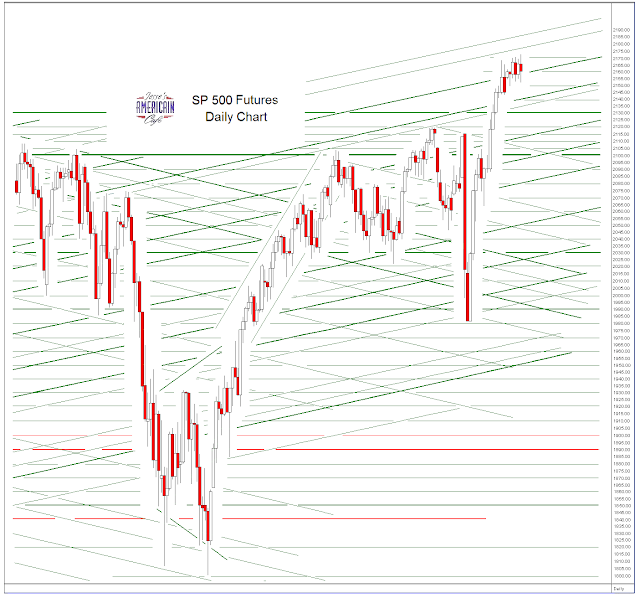Financial Markets and Economy
Yellen Still Waiting for Overwhelming Evidence to Warrant Hike (Bloomberg)
For Federal Reserve officials, getting better never seems to rise to good enough.

Stock Investors Pay Up for Peace of Mind (Wall Street Journal)
Investors are pouring billions of dollars into funds that promise to minimize market swings, highlighting the anxiety that prevails after seven years of stock gains.
Has Wall Street Been Tamed? (Bloomberg)
Chris Hentemann has two pieces of art on the walls of his corner office in midtown Manhattan. One is an oversize photograph of the cockpit of his twin-engine Beechcraft Baron. The other is an Andy Warhol print of Muhammad Ali with his fists cocked.

Wall St. expects big helping of earnings from restaurants (Reuters)
Wall Street is expecting a solid helping of earnings from McDonald's and other restaurant operators that are preparing to serve up quarterly results over the next few days.
Restaurants have been major winners as consumers spend more of their disposable income on going out and less on clothes and other retail products, a trend that could become more apparent following recent improvements in U.S. employment and wages.
Best-Paid CEOs Run Some of Worst-Performing Companies (Wall Street Journal)
The best-paid CEOs tend to run some of the worst-performing companies and vice versa—even when pay and performance are measured over the course of many years, according to a new study.
A Year After Iran Deal, Oil Flows But The Money's Stuck (Bloomberg)
A jump in oil exports, business deals signed with global companies and inflation tamed: One year since Iranian negotiators gathered with the world’s top diplomats to unveil their nuclear accord and Iran’s economy is on the mend. That’s the good news for President Hassan Rouhani in the final year of his first term.

Here's why investing in China is 'crazy … literally' (Business Insider)
For those who have been following Asian markets for some time, Taiwan and China are looking awfully similar.

Investors should think twice before shifting a big portion of their stock or bond holdings into gold. The yellow metal’s historical returns raise serious questions about its role in a well-diversified portfolio.
It’s easy to see why investors are increasingly interested in gold, however. With the stock market's recent surge to new all-time highs, stock prices are now well into overvalued territory. The price-to-earnings ratio, one standard valuation measure, shows the S&P 500 index to be 56% more expensive than the long-term average.
Analyst Downgrades Apple And Says it Has 'Peaked' (Bloomberg)
With Apple Inc's earnings report just a day away, Wall Street analysts are more at odds than ever, and one of them in particular anticipates tough times for the tech giant.

Verizon is winner in Yahoo sale with $4.8B bid (USA Today)
Verizon announced Monday that it will acquire Yahoo's core business for $4.8 billion.
This chart of Yahoo's market cap is just the most outrageous thing (Business Insider)
If the tech bubble seems like a long time ago, well, it was.

Four Lessons From the Yahoo Sale (Bloomberg Gadfly)
Yahoo pulled down the curtain on a six-month sale process with the (sort of) finale we all expected, with Verizon emerging from the scrum clutching a broken toy it had badly wanted. To steal an adjective from the companies' deal announcement, this is a "poetic" combination of Yahoo and Verizon's 2015 acquisition AOL. Both are web companies popular in the 1990s that have held up as well as Hootie & the Blowfish songs from that era.
 Nintendo shares plummet after it points out it doesn't make Pokémon Go (The Guardian)
Nintendo shares plummet after it points out it doesn't make Pokémon Go (The Guardian)
Nintendo’s share price on the Tokyo Stock Exchange has plummeted 17% in one day, apparently due to investors belatedly discovering that the company doesn’t actually make Pokémon Go, the latest mobile gaming phenomenon.
The company is still buoyant, though: Since the game launched in mid-July, Nintendo’s share price has more than doubled.
SP 500 and NDX Futures Daily Charts – Peak Hubris (Jesse's Cafe Americain)
How can we possibly have any problems, except for malcontents, naysayers, and whiners? We are the greatest!

Politics
 Democrats Take Wrong Turn on Superdelegates (Bloomberg View)
Democrats Take Wrong Turn on Superdelegates (Bloomberg View)
The Democrats have taken steps to reduce the influence in 2020 of the so-called superdelegates. Unfortunately, they’re doing it wrong.
Most delegates at the Democrats’ convention are allocated to candidates based on the results of caucuses and primaries. Superdelegates are automatic delegates, entitled to that position by virtue of their status as either elected officials (members of of Congress or governors) or members of the Democratic National Committee. They are free to support any candidate they want. In this cycle, most of them committed to Hillary Clinton, and many announced that decision before the voters first got involved in the process.
Trump's Appetite for Destruction: How Disastrous Convention Doomed GOP (Rolling Stone)
Hell, yes, it was crazy. You rubbed your eyes at the sight of it, as in, "Did that really just happen?"
 Does Hillary Clinton have a political death wish? (Market Watch)
Does Hillary Clinton have a political death wish? (Market Watch)
Is Hillary Clinton actually trying to lose this election?
Does she really want the White House? Or is she trying, consciously or subconsciously, to sabotage her own campaign?
Technology
 This ‘placenta on a chip’ mimics the real thing (Futurity)
This ‘placenta on a chip’ mimics the real thing (Futurity)
The first placenta-on-a-chip can fully model the transport of nutrients between mother and fetus.
The flash-drive-sized device contains two layers of human cells that model the interface. Microfluidic channels on either side of those layers allow researchers to study how molecules are transported through, or are blocked by, that interface.
Health and Life Sciences
 A Different Way To Test For HIV Or Allergens (Forbes)
A Different Way To Test For HIV Or Allergens (Forbes)
The microwell plate is a mainstay of modern labs. About the size of a small tablet, these plastic trays hold a grid of tiny cups where chemicals can be mixed and analyzed. By varying the contents of each well, scientists can quickly and efficiently screen prospective drug molecules to see which is most effective or test samples from hundreds of people for infection at once.
 Saving Money on Cardiac Care (Bloomberg View)
Saving Money on Cardiac Care (Bloomberg View)
The federal government's own actuaries are once again pessimistic that America's health-care costs will continue their slow growth. Thankfully, their boss, Sylvia Burwell, the secretary of Health and Human Services, is working hard to prove them wrong. On Monday, she took another big step in the right direction.
Life on the Home Planet
 At Least 15 Killed in Knife Attack at Japan Disabled Facility (Bloomberg)
At Least 15 Killed in Knife Attack at Japan Disabled Facility (Bloomberg)
Japan's national broadcaster NHK reports that 15 people were killed and 45 injured in a knife attack Tuesday at a facility for the handicapped in Sagamihara, just outside Tokyo.
Police said they responded to a call about 2:30 a.m. from an employee saying something horrible is happening.
 Global arms race escalates as sabres rattle in South China Sea (Telegraph)
Global arms race escalates as sabres rattle in South China Sea (Telegraph)
The South China Sea has become the most dangerous fault-line in the world. Beijing and Washington are on a collision course over these contested waters, the shipping lane for 60pc of global trade.
As expected, the International Court of Justice in The Hague has ruled that China has no “historic title” to areas of this sea stretching all the way to the ‘nine dash line’ – deep into the territorial waters of a ring of South East Asian states.
 The world isn’t getting worse — our information is getting better (Geek Wire)
The world isn’t getting worse — our information is getting better (Geek Wire)
Ray Kurzweil, the author, inventor, computer scientist, futurist and Google employee, was the featured keynote speaker Thursday afternoon at Postback, the annual conference presented by Seattle mobile marketing company Tune. His topic was the future of mobile technology. In Kurzweil’s world, however, that doesn’t just mean the future of smartphones — it means the future of humanity.



